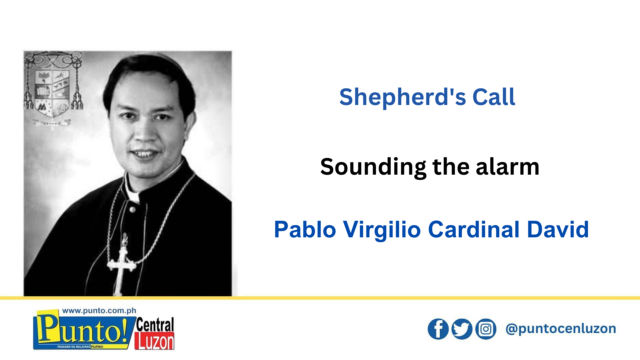AS I walked once more through the vast and interconnected pavilions of the Blue Zone of COP 30—each one devoted to the struggles, hopes, and scientific work of nations, peoples, and communities—I could not help but imagine myself entering a modern-day Noah’s Ark.
The Gospel today alludes to the days of Noah—a time when people lived their ordinary lives, unmindful of the rising waters, blind to the accumulating signs of an impending catastrophe. Only Noah heard the warning. Only he responded. Only he prepared an ark—a vessel of refuge, cooperation, and covenant.
Here in Belém, this extraordinary gathering of nations feels like that ark:
a colossal, multi-roomed sanctuary where scientists, diplomats, Indigenous leaders, faith communities, and civil society have come together with one urgent cry—we are running out of time.
Like Noah’s allies—if he had any—we are sounding an apocalyptic alarm. We speak of warming oceans, collapsing coral reefs, rising seas, forests ablaze, rivers poisoned, and storms becoming fiercer than ever before. We speak of a planet groaning under our excess and a future sinking under our indifference.
Yet the Gospel reminds us that most people, in Noah’s time, simply went on eating, drinking, buying, selling—unaware that the floodwaters were already at their ankles.
Is this not our world today?
But the first reading gives the deeper, more uncomfortable truth.
Wisdom 13 tells us that the climate crisis is not only about the loss of ecological harmony. It is also about the loss of spiritual harmony—the rupture in our relationship with the Creator.
The people of Noah’s time failed to recognize not only the signs of their environment, but also the voice of the One who had fashioned that environment in love.
The text ends with a piercing question:
“For if they so far succeeded in knowledge that they could speculate about the world, how did they not more quickly find its Lord?”
This is the heart of our crisis.
We have succeeded in knowledge—in measuring atmospheric carbon, in predicting temperature rise, in modeling floods and droughts, in mapping the devastation of oceans and forests.
But have we succeeded in wisdom?
We have learned to understand the world, but have we learned to reverence its Maker?
We have mastered the science of climate change, but have we rediscovered the spirituality that could heal our relationship with creation itself?
The climate crisis, at its core, is not only a crisis of carbon.
It is a crisis of communion— our broken communion with the Earth and our forgetfulness of the Creator who entrusted it to us.
If the COP 30 Blue Zone is Noah’s Ark, then our task is not only to save the animals and the forests, not only to save our islands and coastlines, not only to save our children’s future—
But also to allow creation to lead us back to the Creator.
To restore not just the integrity of ecosystems, but the integrity of our souls.
For only when we remember the Lord of creation can we truly renew the face of the Earth.
(A reflection on my COP 30 Experience in Brazil, based on today’s (Nov. 15) readings: Wisdom 13:1–9; Luke 17:26–37)





